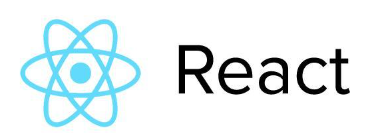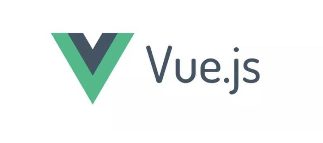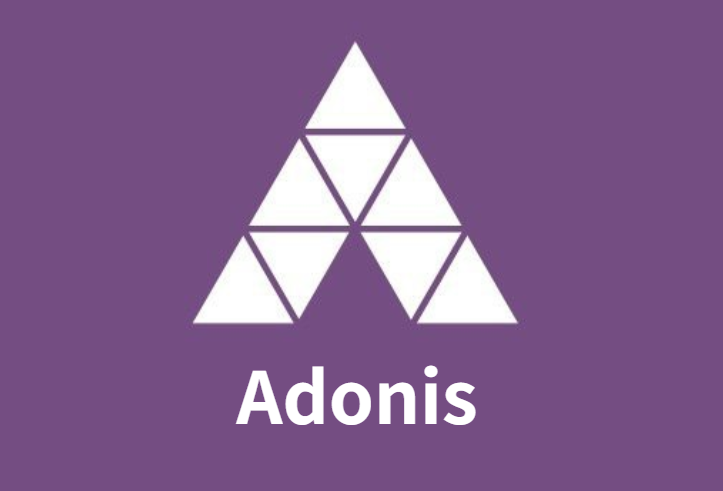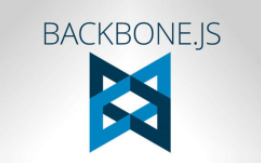6 JavaScript frameworks worth learning
May 31, 2021 Article blog
Table of contents
Today's frameworks and libraries have emerged from the wilderness era, and many older technologies have begun to separate functionality into modules. N
ow that all features are no longer supported throughout the core language, developers allow all users to create libraries and frameworks to enhance the functionality of the core language.
As a result, the flexibility of the language has been significantly improved.
If you're already using JavaScript (and JQuery) to support HTML, you know for sure how hard it takes to develop and maintain a large application and how complex code it is to write, and the JavaScript framework can help you quickly build interactive web apps that include single-page or multi-page
apps.
When a novice developer wants to learn JavaScript, he is often attracted to a variety of JavaScript frameworks, and thanks to the large community, any developer can easily learn through online tutorials or other resources.
But, alas! M
ost programmers have a hard time deciding which framework to learn and use. S
o in this article, I'll recommend 6 JavaScript frameworks worth learning.
Let's get started.
1.AngularJS

Whenever you hear about JavaScript, chances are you've heard of AngularJS for a long time, because it's the most widely used framework in the JavaScript community. It was released in 2009 and developed by Google (which is persuasive enough for you to use), and it's an open source project that means you can read, edit, and modify its source code to better suit your needs without paying a penny to its developers (isn't that cool?).
If you find it difficult to write a complex web app from pure JavaScript code, you're sure to jump on it with excitement because it will significantly reduce your coding burden. I t conforms to the MVC (Model-View-Control Model-View-controller) design model that supports bidirectional data binding. If you're not familiar with MVC, you just need to know that it represents the front end (for example, the user interface side) and the back end (code or server side) data whenever certain changes are detected.
MVC can greatly reduce the time and effort required to build complex applications, so you only need to focus on one place (the DOM programming interface automatically updates views and models simultaneously). B ecause view components are separate from model components, you can easily create a reusable component that makes the user interface look great.
If for some reason you've already used Type (a language very similar to JavaScript), you can easily get started with AngularJS because the syntax of the two is highly similar. This feature, similar to Type, has increased the popularity of AngularJS to some extent.
Currently, Angular 2.0 has been released and improved mobile performance, which is enough to prove to a new developer that the framework is highly dynamic and regularly updated.
AngularJS has a large number of users, including(but not limited to) Udemy, Forbes, GoDaddy, Ford, NBA, and Oscars.
For those who want an efficient MVC framework to develop a single-page application with a robust and modern infrastructure, I highly recommend it. This is the preferred framework for inexperienced JavaScript developers.
2.React

Similar to AngularJS, React is also a framework of the MVC (Model-View-Control Model-View-controller) type, but unlike it is completely targeted at view components (because it is specifically customized for the UI) and seamlessly interfaces with any architecture. T his means you can apply it to your website right away.
It abstracts the DOM programming interface from the core functionality (and therefore uses virtual DOM), so you can quickly render the UI, which allows you to use it as a client framework through node .js. I t's an open source project developed by Facebook, and other developers have contributed code to it.
If you've seen and liked the Facebook and Instagram interfaces, you'll love React. W ith React, you can design a simple view of each state of your app, and when the data changes, the view changes automatically. Y ou can create a variety of complex UIs if you want, or you can reuse them in any app. O n the server side, React also supports rendering through node .js. R eact is also flexible enough for other interfaces.
In addition to Facebook and Instagram, React is also used by a number of companies, including Whatsapp, the BBC, PayPal, Netflix and Dropbox.
If you only need a front-end development framework to build a very complex and powerful view layer with a great interface, I highly recommend it to you, but you need to have enough experience to handle all types of JavaScript code, and you don't need any more components (because you can integrate them yourself).
3.Vue.js

This open source JavaScript framework, released in 2014, has an extremely simple API for developing interactive components for the modern web interface Modern Web Interface. I ts design focuses on ease of use. Similar to Ember, it simplifies the design by using the MVVM (Model-View-View Model Model-View-Viewmodel) design paradigm.
One of the most attractive things about this framework is that you can choose which modules to use according to your needs. For example, you need to write simple HTML code, crawl JSON, and then create a Vue instance to accomplish small effects that can be reused.
Similar to previous JavaScript frameworks, it uses two-way data binding to update models and views, as well as connectors to communicate views and data connectors. This is a framework that is not yet fully mature because all its focus is on the view layer, so you need to work with the other components yourself.
If you're familiar with AngularJS, you'll feel comfortable because it's heavily embedded in the architecture of AngularJS, and if you understand the basic usage of JavaScript, many of your projects can easily migrate under that framework.
I highly recommend this if you just want to get the job done, or if you want to improve your own JavaScript programming experience, or if you need to learn the nature of different JavaScript frameworks.
4.Ember

This JavaScript framework was officially released in 2011 as an open source project developed by Yehuda Katz. I t has a large and active online community, so you can ask questions in the community whenever you have any questions. The framework incorporates a wide variety of common JavaScript styles and experiences to ensure that developers get out of the box as quickly as possible.
It uses the design pattern of the MVVM (model-view-view model Model-view-viewmodel), which makes it somewhat different from MVC because it is communicated by a connector (binder) help view and data connector.
For fast service-side rendering of doM programming interfaces, it leverages fastboot .js, which can greatly improve the performance of those complex UI.
Its modern routing patterns and model engine also support the RESTful API, which ensures that you can use this latest technology. It supports the handle integration template Handlebars integrated template, which is used to automatically update data.
Back in 2015, it was once overshadowed by AngularJS and React, known as the best JavaScript framework, and that's enough persuasive for its availability and appeal in the JavaScript community.
I personally recommend this JavaScript framework for users who don't seek high flexibility and large architecture, and who are simply rushing to work and completing tasks.
5.Adonis

If you've ever used Laravel and NodeJS, you'll find it pretty easy to use because it's a framework that combines the benefits of both platforms and is very professional, rounded, and sophisticated for any kind of modern application.
It uses NodeJS, so it's a good back-end framework with some front-end features (unlike the one mentioned earlier that focuses more on the front end), so novice developers who want to get into back-end development will find it fascinating.
Many developers prefer SQL databases to NoSQL (because they need to enhance the interactivity of data and other features), a phenomenon that is well reflected in this framework, which makes it closer to standard and easier for developers to use.
If you're in a variety of PHP communities, you're familiar with Service Providers, and because Adonis contains the appropriate PHP style, you'll feel familiar when you use it.
Of all its features, the best is the extremely powerful routing engine, which supports the use of functions to organize and manage all the states of an app, supports error handling mechanisms, supports database queries through SQL ORM, supports generators, supports arrow functions, supports agents, and so on.
If you prefer to use the Stateless REST API to build server-side apps, I recommend it and you'll love the framework.
6.Backbone.js

This framework can be easily integrated into any third-party template engine, using the Underscore template engine by default, and the framework has only one dependency (JQuery), so it is known for its lightweightness. It supports MVC (model-view-control Model-view-controller) design paradigms with RESTful JSON interfaces that automatically update the front and back ends.
If you've ever used reddit, a well-known social news web service, you've probably heard of its use of Backbone .js in several single-page apps. Backbone .js's original author built a Downscore template engine for it, so you can rest assured that developers know what to do.
The framework provides key-value pairs of key-value models, views, and several packaged modules in one package, so you don't need to download additional external packages, which can save a lot of time. The source code for the framework can be viewed at GitHub and can be deeply customized to your needs.
So far, I've highlighted six JavaScript frameworks in this article that you hope you'll be able to decide which framework to use to accomplish your tasks after reading this article.
If you're still at a loss about choosing a framework, remember that the world is a practice of truth, not dogmatism. I t's best to pick one from the list to use and see if it finally meets your needs and interests, and if not, try another. And you're relieved that the framework in the list is definitely enough.